Red Pill Reality: how toxic masculinity, hypergamy myths, and incel ideology fuel violence and a crisis in modern manhood 😔
Myths of hypergamy and red pill ideology fuel toxic masculinity and incel violence. Explore how conspiracy theories reshape modern masculinity-and what can be done to stop the crisis.

One night on Instagram, a video turned up on my timeline. It was hard to follow, but essentially the theory was this: social media has allowed “average” women to access "exceptional" or "top-tier" men.
Because I watched it a few times, the algorithm assumed I wanted more. Within a few minutes my feed was full of the same idea: women are in control of dating, sex, love, and opportunity.
Scroll through YouTube, Reddit, or increasingly larger parts of X, and you'll find endless echoes of the same conviction: that society is secretly ruled by women, and that most men are trapped. Unloved, unseen, and powerless in a system rigged against them.
👇👇Listen to the podcast below. 👇👇
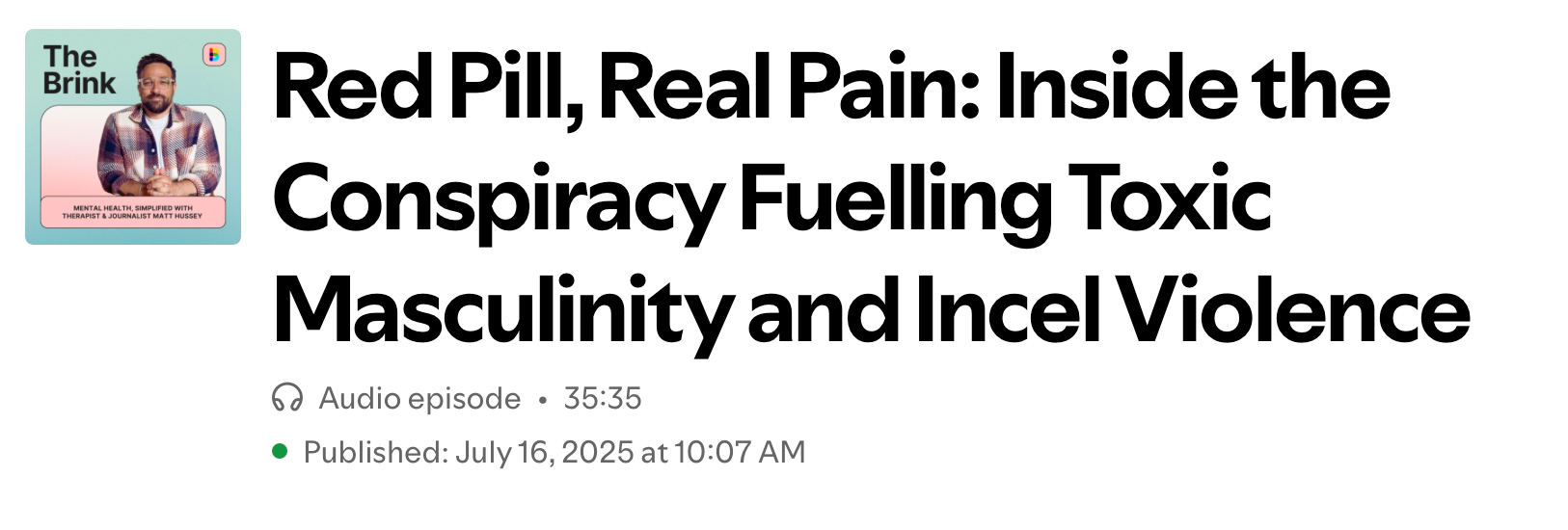
This idea doesn’t have a distinct name. You can find it referred to as many things:
- "Feminist Overreach" Narratives: Arguments that feminism has gone too far and now dominates institutions.
- Critiques of "Toxic Femininity" or "Female Privilege": While not universally accepted terms, these concepts are used to describe what they perceive as negative female traits or unearned advantages.
- "Hypergamy" as a Tool of Female Control: The idea that women inherently seek higher-status partners (hypergamy) is often used to explain perceived female control over dating markets and societal structures, leading to men being "used" or "discarded."
- "Beta Male" vs. "Alpha Male" Dynamics: These terms are used to classify men based on their perceived dominance and success, with the implication that modern "gynocentric" society promotes "beta" behavior while punishing "alpha" traits.
But for the purposes of this article, I’m going to throw a ring around this loose collection of ideas and call it the "feminist gynarchy."
At its core, it's a conspiracy theory. One that insists women wield hidden dominance not only in politics or culture, but in the most intimate arenas of sex, dating, and relationships.
In this worldview, a small cadre of highly attractive men known as "Chads" monopolize women's romantic attention, leaving the majority of men to suffer in sexual and social exile. And it goes deeper still: believers argue that feminism itself was a kind of hostile takeover, transforming the world into a hidden matriarchy where men's only choice is to "take the red pill," awaken to the truth, and fight back.
The feminist gynarchy theory is the ideological glue binding vast swaths of the online manosphere, a sprawling network of forums, influencers, and self-appointed masculinity gurus.
It's an ecosystem that stretches from the resentful corners of the incel movement to polished, high-production podcasts where hosts talk about "sexual market value" as if they're reading stock charts.
For many, it's a dark joke or internet meme. But for a growing number of men, it's not funny at all.

Belief in the gynarchy fuels an entire subculture that's redefining modern masculinity, and in some cases, fueling real-world violence. Its narratives seep into mainstream social media, quietly shaping how boys and men think about women, dating, and themselves.
Behind its conspiracy lies a much more complex reality: economic disruption, loneliness, shifting gender roles, and the crushing weight of traditional masculinity that tells men they must dominate-or be nothing at all.
So how did this conspiracy take hold? Why does it resonate so powerfully - and so dangerously - with so many men? And what does it say about the hidden wounds driving modern male identity?
What Exactly Is the Gynarchy? The Core Beliefs Explained 🤔

When modern men use the term "gynarchy", they aren't just referring to a conspiracy that women secretly run the world today. They're also drawing on a long-standing cultural myth: that, in humanity's ancient past-especially during the Neolithic era-women once held true social power, perhaps even forming matrilineal or woman-centered communities.
The Myth of Neolithic Gynarchy 🕰️
Archaeologists like Marija Gimbutas and Riane Eisler popularized the idea that early agrarian societies such as those in Çatalhöyük (modern Turkey) around 7,000 BC were organized along matrilineal or matrilocal lines, where inheritance passed through the mother's family and women may even have headed households.
Feminist writers like Elizabeth Gould Davis and Riane Eisler went further, suggesting that these early "gynocentric" societies were often peaceful, goddess-worshipping, and structured on partnership rather than dominance - what they calls "gylany", a gender-balanced social model.

However, this romantic interpretation is controversial. Critics-including archaeologist Cynthia Eller and mainstream reviewers warn that while goddess figurines and matrilineal burials are compelling, they don't definitively prove women wielded political or ritual control.
Recent data from sites across Neolithic Europe and Iberia suggest many of these communities were actually egalitarian, not female-dominated, but certainly showed far less gender inequality than later Bronze Age societies.
Egalitarianism, Matriarchy, or Misinterpretation? ⚖️
Modern scholars caution against projecting myths onto ancient societies. While Çatalhöyük shows evidence of matrilineal lineage and gender-balanced burials, its leadership structure-if it existed-remains debated. There's little to suggest women truly ruled over men.
Yet, the very idea of gynarchy, a time of female socio-cultural centrality-became powerful imagery. It gave rise to narratives that certain women today are merely reclaiming a lost reign.
From Prehistory to Modern Fantasy 🕳️
Today's manosphere borrows this ancient myth to lend historical credibility to its beliefs. According to them, just as women once ruled in Neolithic times, they now secretly dominate politics, media, dating, and sex, pulling the strings behind the scenes.

Social media and ideology infuse this idea with new urgency: the "feminist gynarchy" is said to be feminism's modern incarnation, a shadow takeover. And indeed, some women have taken up the myth. We’ll explore this more later.
From Lonely Forums to Radical Belief: How the Gynarchy Narrative Spread 👨💻

If the idea of a feminist gynarchy sounds extreme, that's because it is. Yet over the past two decades, it's become a powerful explanation for thousands - if not millions - of men trying to make sense of personal pain and social change.
It didn't start as hatred. In the 1990s, a Canadian woman named Alana created an online space for people of any gender struggling with loneliness and sexual frustration. She called it the Involuntary Celibacy Project - a support forum for shy, isolated individuals seeking understanding, not vengeance.
But by the mid-2000s, that gentle mission began to fracture. Message boards grew more toxic. A new wave of posters shifted the conversation from sharing personal struggles to blaming women, feminism, and society at large for their sexual and romantic failures. Instead of mutual empathy, forums became echo chambers of anger and conspiracy.

Enter the manosphere: an umbrella term describing the sprawling online ecosystem of blogs, YouTube channels, subreddits, and TikTok accounts devoted to male grievance. It's not a single movement, but a loose federation of communities like:
- MRAs (Men's Rights Activists), who argue that feminism has gone too far and men now face systemic oppression.
- MGTOW (Men Going Their Own Way), who advocate for total withdrawal from relationships with women.
- PUAs (Pick-Up Artists), who promise men secret techniques to "win" women's attention.
- And the darker corners of incel communities, where sexual frustration festers into violent ideology.
While these groups often feud among themselves, they share a common narrative: that modern society-led by feminism-has rigged the game against men. And at the center of this grievance sits the gynarchy myth.
"Taking the red pill," one popular meme declares, "means realizing women secretly control everything."
The phrase "red pill" comes from The Matrix (1999), where swallowing a red capsule reveals a hidden reality. In manosphere parlance, it's shorthand for the "truth" that feminism has covertly overthrown male authority and replaced it with female dominance.
This worldview offers men something deeply seductive: a way to convert personal disappointments into righteous cause. Instead of facing rejection, heartbreak, or job insecurity as individual setbacks, believers blame the gynarchy. They see themselves as victims of a global conspiracy rather than grappling with uncomfortable truths about dating, economics, or masculinity itself.
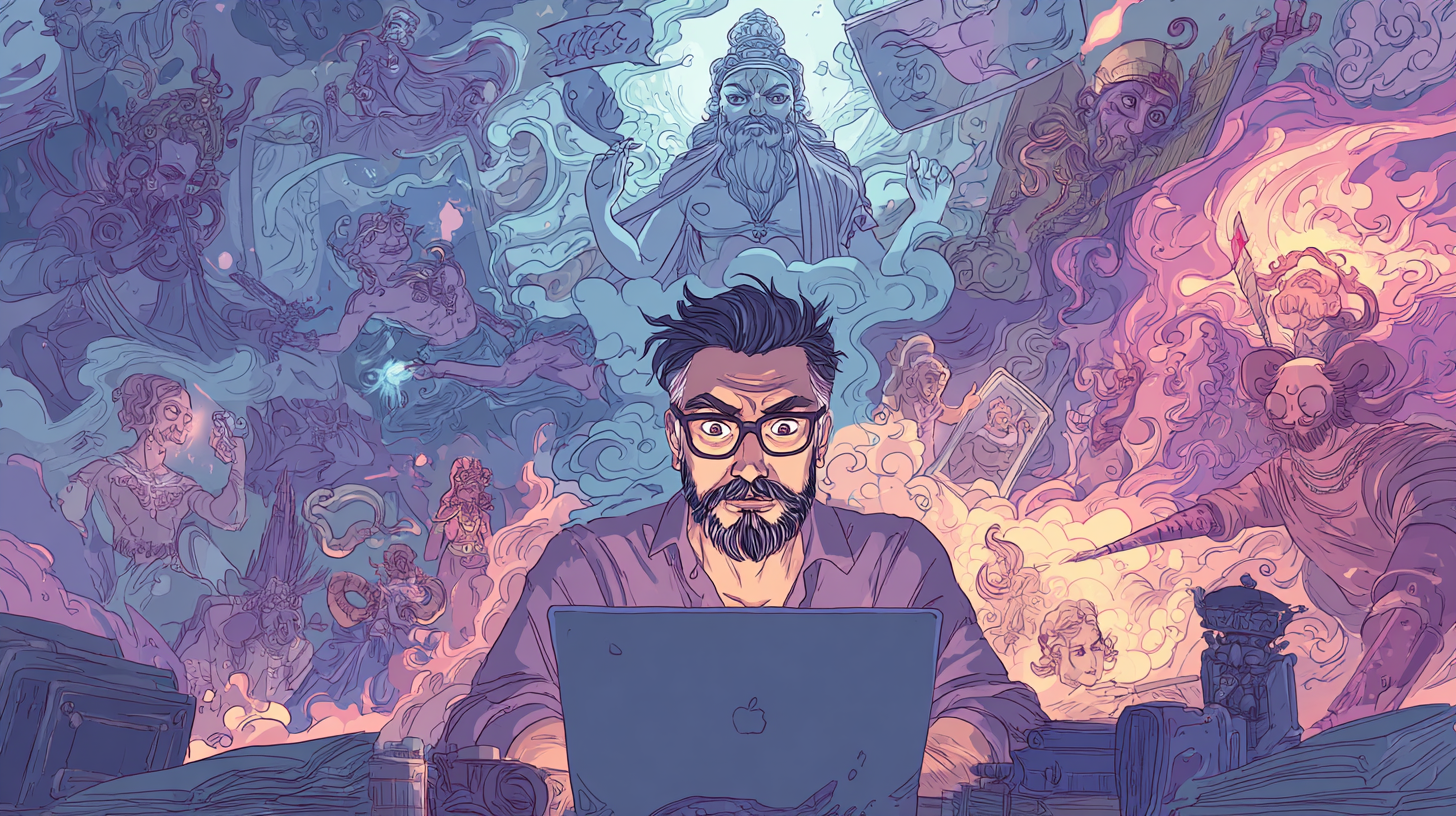
And the internet has supercharged this transformation.
Social media algorithms-particularly on YouTube and TikTok-thrive on engagement. Content that stokes outrage, fear, or shock travels fastest. Videos about "high-value men," "sexual market value," or how women supposedly manipulate men rack up millions of views. Once a user clicks on one manosphere video, platforms are primed to serve them more, funneling viewers deeper into radical echo chambers.
A 2023 study by Equimundo found that 40% of adult U.S. men - and half of younger men - report following or trusting at least one manosphere figure or channel.
The result? The notion of a feminist gynarchy has spread far beyond fringe forums. It's now a viral narrative pulsing through reels, podcasts, and influencer posts, a conspiracy dressed up as advice.
What began as lonely men looking for support has evolved into a sprawling digital culture where anger, misogyny, and the belief in a covert female takeover are monetized - and sometimes weaponized.
The Manfluencers: Monetizing Male Misery 📻
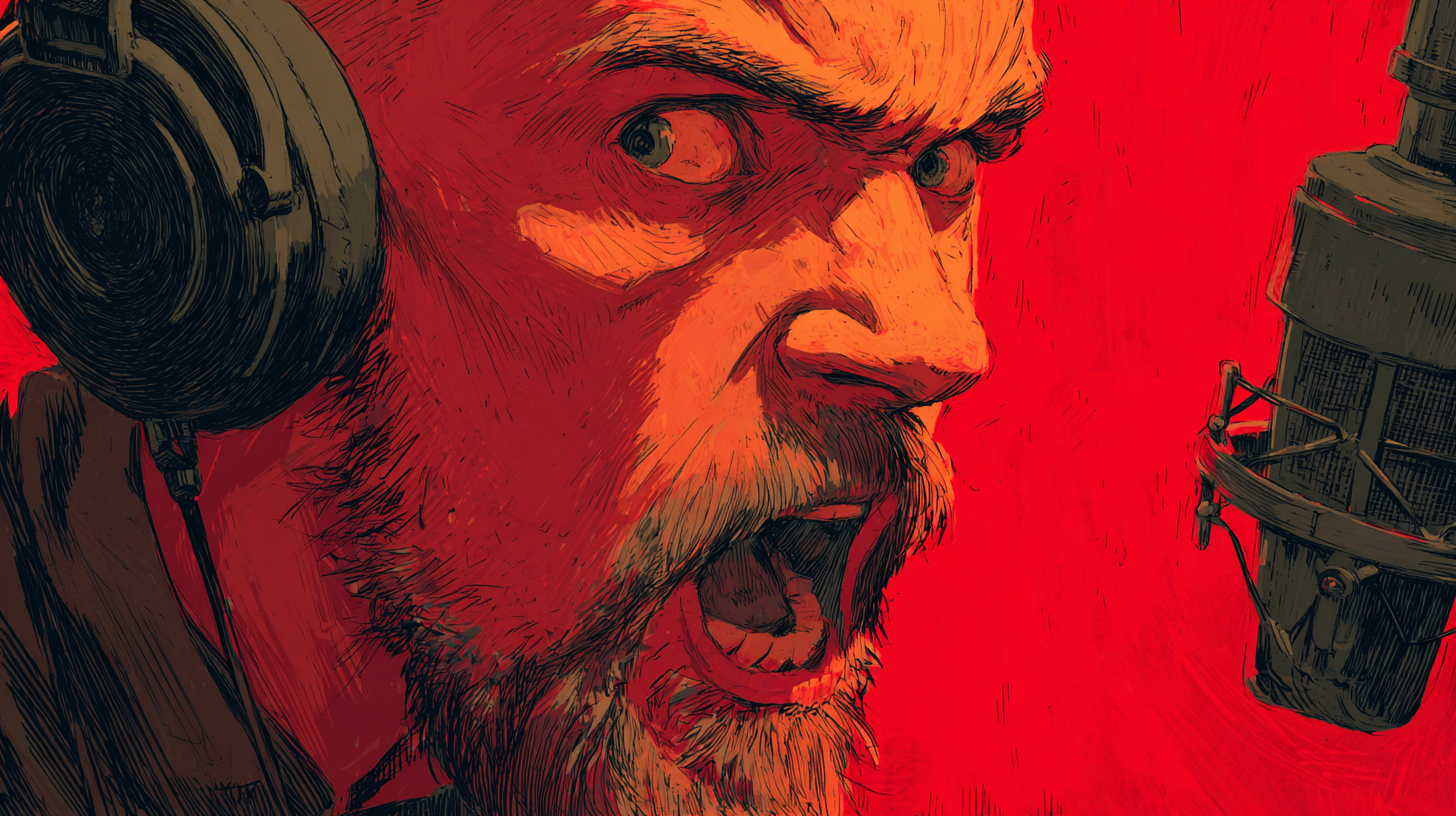
Scroll TikTok or Instagram long enough, and you'll run into a certain kind of man. He's in a luxury car, staring into the camera, declaring that women secretly run the world-and that he alone has the roadmap for men to reclaim their power.
These are the manfluencers-internet personalities who've turned male grievance into a booming business.
You already know Andrew Tate, the brash ex-kickboxer whose videos about women "belonging in the home" and feminism destroying society have amassed billions of views. And you’ve probably heard of the late Kevin Samuels, who skyrocketed to fame telling women they were "average at best" and charging high-paying clients thousands for dating advice. Then there's Fresh & Fit, Sneako, and Pearl Davis-newer voices riding the same algorithmic wave.
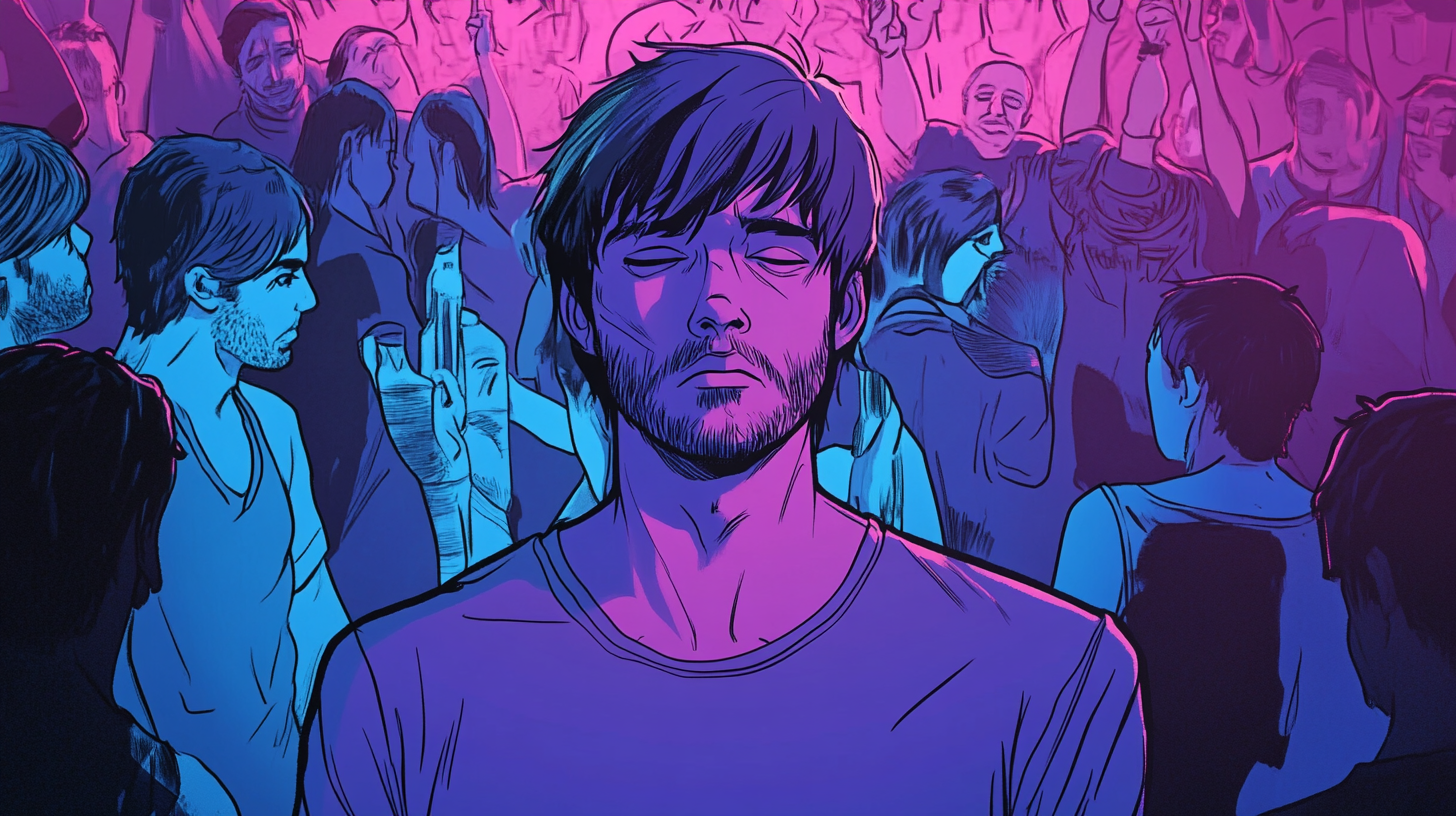
They differ in style, but they share the same playbook:
- Outrage as a business strategy. Tate himself has admitted that controversy fuels profits. "Having tens of millions of people who hate you and a couple million who love you is worth hundreds of millions of dollars," he bragged in interviews.
- Community as product. Private Discord servers and Telegram groups create exclusive spaces where men bond over shared grievances-and become primed customers for more content, courses, or "insider" advice.
- Selling solutions. From $50 e-books to $10,000 coaching calls, manfluencers market self-help with a twist: they promise to teach men how to dominate women, master wealth, and escape the supposed feminist trap.
- Algorithmic amplification. Social platforms reward content that provokes strong reactions. Short clips of Tate or Samuels ranting about "female supremacy" are perfect for the viral ecosystem, pulling in new followers by the millions.
The business is big. Tate alone was reportedly making millions per month through online courses and affiliate marketing before platform bans. Kevin Samuels earned roughly $5,000 monthly from YouTube alone, not counting high-fee consulting and sponsorships. Even smaller creators rake in revenue from Super Chats, brand deals, and paid communities.
For many young men struggling with loneliness, rejection, or economic hardship, these manfluencers offer a seductive message: the game is rigged, but they can teach you how to beat it. And if it costs a few hundred - or a few thousand-dollars? That's just the price of "waking up."
It's a lucrative ecosystem built on grievances. And it's one step away from radicalization.
From Meme to Murder: Gynarchy and Real-World Violence 🚨
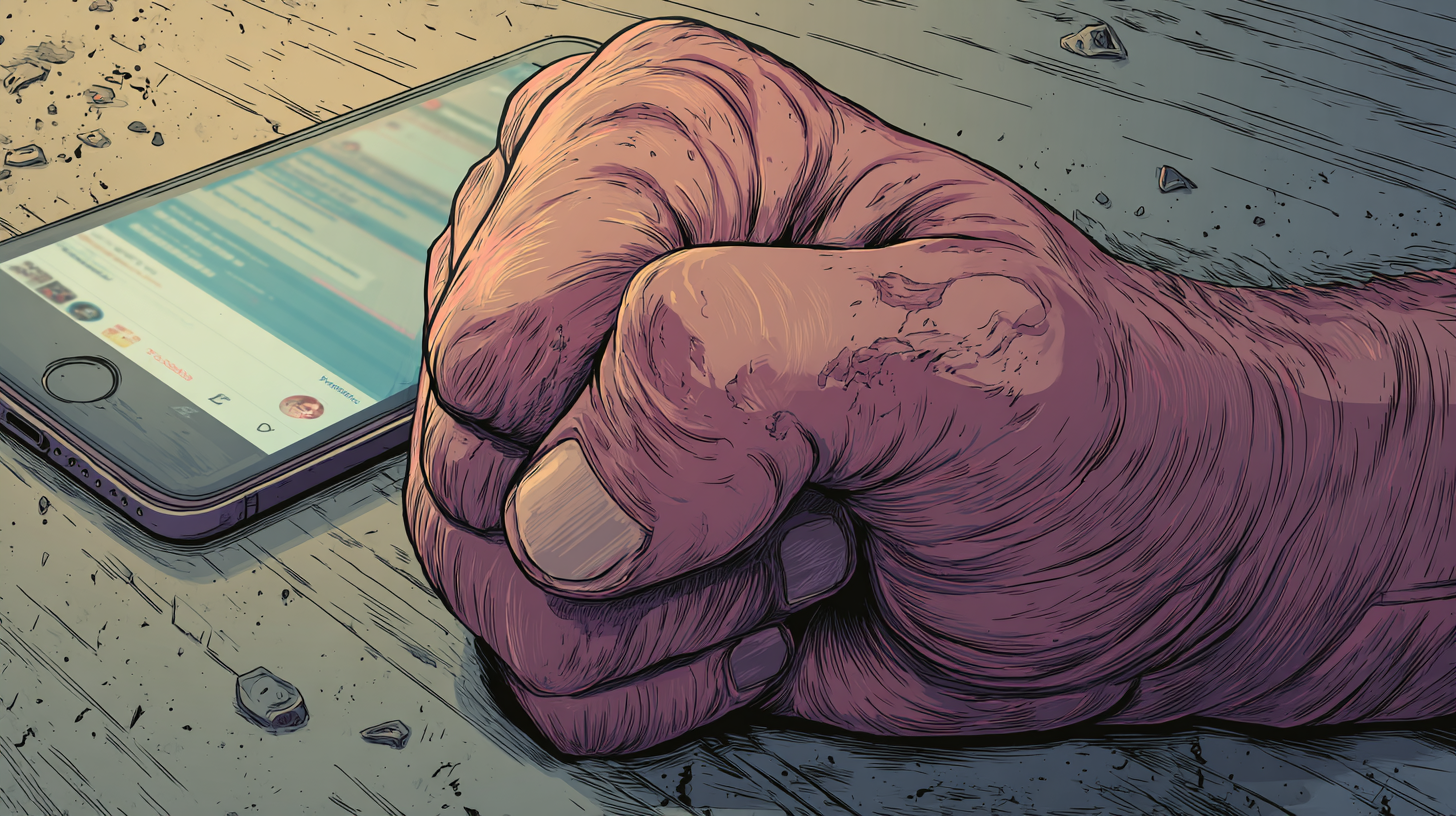
For some men, belief in the feminist gynarchy stays online: a swirling vortex of memes, YouTube rants, and heated forum threads. But for others, the narrative metastasizes into something far more dangerous.
The idea that women secretly control society doesn't just explain rejection or loneliness: it can become a justification for violence. And over the past decade, that's exactly what's happened.
Consider Elliot Rodger, whose 2014 massacre in Isla Vista, California, left six dead and 14 injured. In his sprawling 107,000-word manifesto, Rodger railed against women for denying him sex, blaming an "unjust" society for elevating "Chads" while leaving him invisible. He explicitly framed his rampage as a "Day of Retribution." Rodger has since been canonized in incel spaces as a kind of tragic hero-proof, they believe, of the gynarchy's cruelty.
Then there's Alek Minassian, who in 2018 drove a van into a crowded Toronto sidewalk, killing 10 and injuring 16. Shortly before his attack, Minassian praised Rodger online and declared an "Incel Rebellion." Canadian authorities later considered charging him under terrorism statutes-a sign of how seriously governments now view these ideologies.

More recently, attackers like Scott Beierle (Tallahassee yoga studio shooting, 2018) and Jake Davison (Plymouth shooting, 2021) have left trails of misogynistic writings tying their violence to manosphere narratives.
In January this year, Solomon Henderson carried out a deadly shooting in Antioch, Tennessee, identifying himself as a "mentalcel" and praising past mass killers. His manifesto combined anti-Black hate, antisemitism, and grievances over sexual rejection into a toxic stew that reads like a distilled version of the gynarchy conspiracy.
The common thread in these tragedies is the idea that personal romantic or sexual frustration is not just private heartbreak, it's evidence of a larger system oppressing men. Once that belief takes hold, violence can start to seem like "justice."
"Incel ideology frames violence as political change," notes a McCain Institute report. "The personal becomes political-and deadly."
Psychologists call it the frustration-aggression hypothesis: when people feel blocked from a goal: like love, sex, or status, their frustration can turn to rage. Within incel communities, some men see only three ways forward: "cope" (accept being alone), "rope" (commit suicide), or "rage" (enact violence for revenge or notoriety).

Governments are taking notice. In Canada and the UK, prosecutors have increasingly labeled incel-inspired attacks as terrorism. Yet experts still debate how to categorize this violence: Is it organized political terror or spontaneous hate crime? Either way, the threat is real. A UK government report warns that incel ideology poses "a grave terrorism threat," particularly to women and marginalized groups.
Even beyond mass attacks, gynarchy beliefs seep into everyday violence. Studies show a clear link between rigid masculinity, economic stress, and intimate partner violence (IPV). Men taught that dominance is their birthright and that women secretly control them are more likely to become abusive when life feels out of control. The conspiracy theory feeds both spectacular acts of violence and the quieter horrors playing out in homes worldwide.
What began as memes has spilled into blood. And understanding the feminist gynarchy narrative isn't just an academic exercise it's a matter of public safety.
Fact-Check: Why the Gynarchy Doesn't Exist 😶🌫️
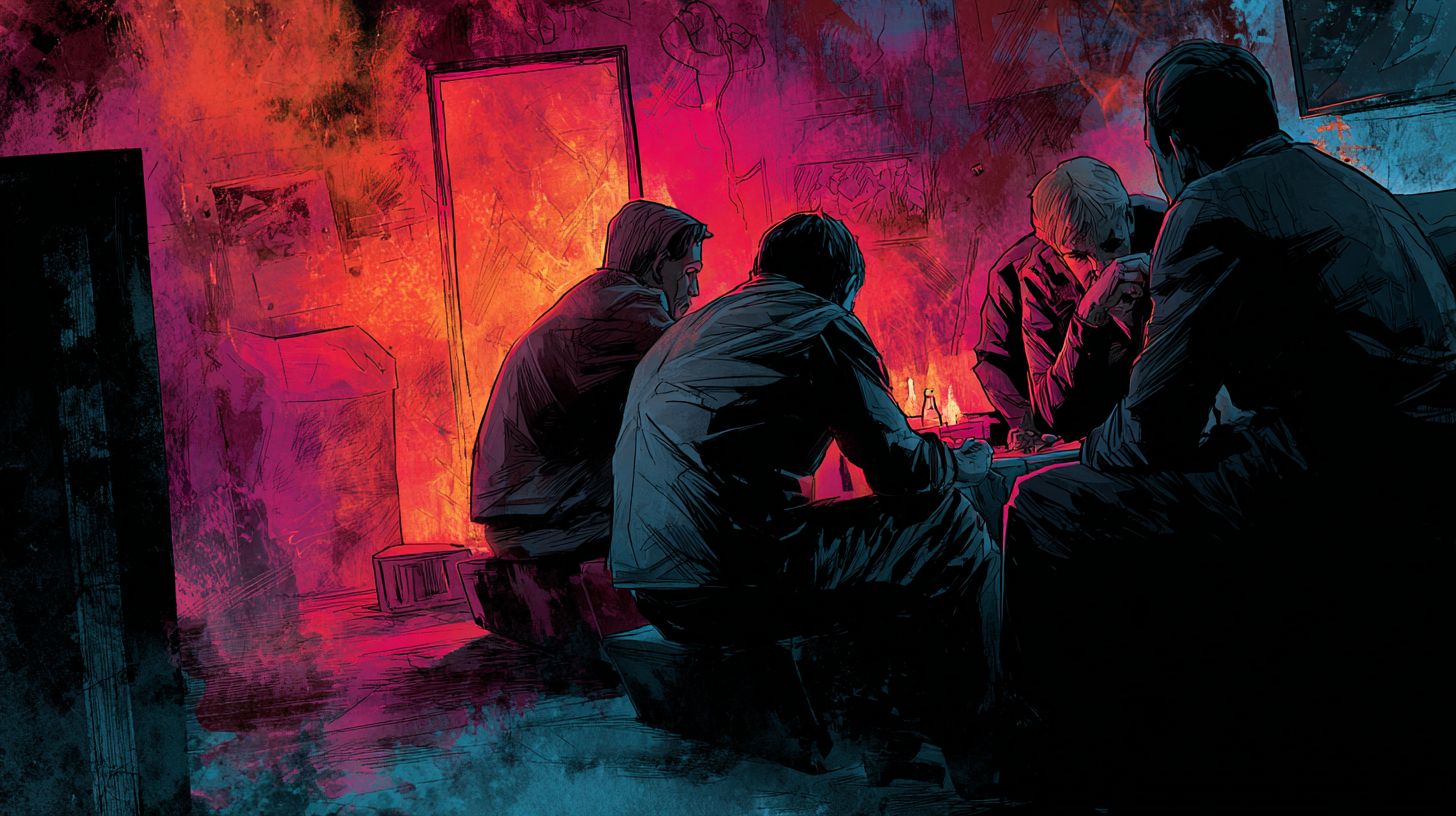
Spend enough time in manosphere spaces, and the "feminist gynarchy" begins to feel like an undeniable truth. Charts get posted. Reddit threads cite "studies." TikTok influencers rattle off statistics. It all sounds convincingly data-driven until you look at the actual facts.
Because here's the reality: there is no feminist gynarchy.
The belief that women secretly run the world, hoarding sexual and social power, simply doesn't stand up to scrutiny. Across virtually every measure of global gender equity, women remain disadvantaged compared to men.
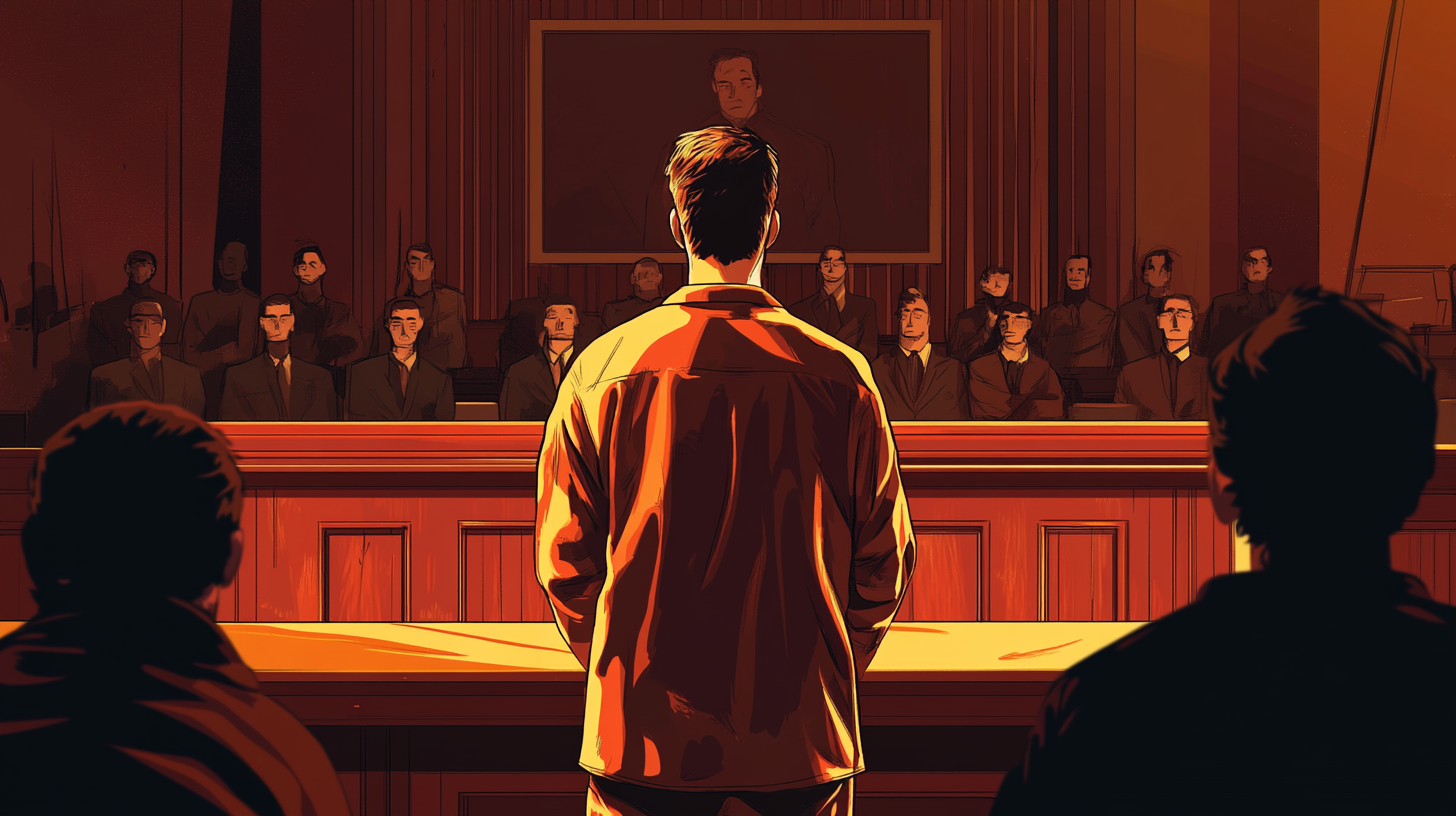
The Gender Pay Gap Persists 💰
Despite decades of progress, women still earn significantly less than men. In the US, women working full-time earn around 82 cents for every dollar earned by men, a gap that's even wider for women of color (UN Women). Worldwide, the gap is even more stark, driven by occupational segregation, unpaid caregiving, and systemic barriers.
Bodily Autonomy Remains Contested 🩸
Around the globe, women continue to fight for control over their own bodies. From reproductive rights rollbacks in the US to gender-based violence in conflict zones, women's bodily autonomy is still under siege. Far from controlling society, women face daily threats to basic freedoms.
Women Face Higher Rates of Violence ⚠️
Women are disproportionately the victims of intimate partner violence, sexual assault, and femicide. The World Health Organization reports that about 1 in 3 women globally experience physical or sexual violence in their lifetimes (WHO). The narrative that women "control men" ignores the brutal reality of male-perpetrated violence.
Misuse of Evolutionary Psychology 🔬
Manosphere influencers often cloak the gynarchy myth in pseudo-science. Terms like "hypergamy" (the idea that women are instinctively driven to marry up in status) are cherry-picked from evolutionary psychology, then blown into sweeping generalizations. Yes, some research suggests people prefer partners with certain traits but the claim that all women abandon low-status men is wildly exaggerated.
"The manosphere constructs its 'gender knowledge' in antagonism to feminist conceptions," notes a 2024 study in Gender & Society. "It's less about scientific evidence than about creating a narrative that legitimizes male grievance."

A Profound Inversion of Reality ⚖️
Ironically, the feminist gynarchy conspiracy is a complete reversal of the real power imbalance. Far from ruling society in secret, women are still fighting for equal representation in governments, boardrooms, and cultural narratives. They're battling centuries-old structures that continue to privilege male authority.
Yet the manosphere's narrative is effective precisely because it feels emotionally true for some men. If you're struggling with loneliness, economic precarity, or romantic rejection, it's easier to blame a hidden conspiracy than grapple with messy personal vulnerability.
"Gynarchy offers a coherent villain for men's frustrations," explains a UN Women article. "It's not reality-but it is a powerful story."
The truth is more complex. Women have gained ground in many societies but they remain far from secretly running the world. And the gap between perception and reality is precisely what fuels the manosphere's growth and its dangers.
Why So Many Men Believe It Anyway 🫥

If the feminist gynarchy is a conspiracy without facts, why does it feel so real to so many men?
Because for many, it's not just about women. It's about loss.
Loss of jobs. Loss of status. Loss of connection. Loss of the simple stories men were taught about what life-and masculinity-should be.
Economic Shifts and the Death of the Breadwinner 💼
In the 20th century, a man's identity was often rooted in stable work and financial security. But the modern economy has pulled the rug out from under millions. Manufacturing jobs vanished overseas or fell to automation. College degrees became essential, leaving many working-class men behind.
A 2024 study found that men without college degrees report lower wages, less romantic success, and higher rates of depression. In a world where masculinity still equates to being a provider, economic failure feels like personal failure - and the gynarchy narrative offers a scapegoat.

The Dating Game and Sexual Marketplace Frustration 💔
Apps like Tinder or Hinge have transformed dating into a digital marketplace. Algorithms amplify selectivity. Studies show that women "like" a small fraction of male profiles, often gravitating toward higher-status or more attractive men. For many men, rejection feels more public-and more humiliating-than ever before.
“Both men and women pursue partners who are on average about 25% more desirable than themselves… Most messages go to the most desirable people, who get many more messages than the average user,” found researchers Elizabeth Bruch and M.E.J Newman.
Believers in the gynarchy conspiracy seize on these dynamics, framing them as proof that women are hyper-selective and disloyal, reinforcing anger toward feminism and modern female autonomy.
Loneliness and Male Social Disconnection 🧍♂️
The modern male loneliness crisis is staggering. Research shows men today have fewer close friendships than previous generations and often rely on romantic partners as their sole source of emotional intimacy. When romantic prospects collapse, men can find themselves isolated.
A 2023 Pew study found that 63% of young men describe themselves as single, and many express uncertainty about dating in a post-#MeToo era. Into that void slips the manosphere, offering community and someone to blame.

The Trap of Traditional Masculinity 🛡️
Layered atop these social and economic changes is the weight of traditional masculinity. From childhood, many boys are taught to be stoic, self-reliant, dominant. Vulnerability is weakness. Asking for help is shameful.
But these same rules leave men emotionally stranded. When men face crises: romantic rejection, job loss, mental health struggles they're less likely to seek therapy or open up to friends. Instead, they may look for simple explanations and quick solutions.
"Rigid masculinity leaves men unable to cope with change," writes a 2025 Vanderbilt report. "Conspiracies offer them certainty and someone to blame."
Algorithms and Digital Echo Chambers ⚙️
Lastly, the internet itself fuels the gynarchy narrative. Algorithms reward extreme content. A man who watches one video on male dating struggles is quickly fed content blaming feminism, hypergamy, and "female supremacy."
This digital rabbit hole makes it feel like everyone is talking about the same problem and that gynarchy is the only explanation.
Believing in the feminist gynarchy doesn't always start as hate. Often, it starts as confusion, loneliness, and fear. But it offers a dangerous comfort: a villain to fight, a community to belong to, and a reason why life didn't turn out as promised.
Understanding why this conspiracy takes hold is essential. Because if we only dismiss these men as hateful or ridiculous, we miss the real story: a deep crisis of identity, belonging, and mental health.
The Counteroffensive: Who's Fighting Back 🤺

The manosphere's narrative is loud, viral, and lucrative. But around the world, researchers, activists, and mental health advocates are working quietly-and urgently-to dismantle the conspiracy at its core.
Because the stakes are high. Left unchallenged, the belief in a feminist gynarchy fuels not only misogyny but violence, isolation, and despair among the very men it claims to save.
🌍 Global Movements Challenging Gynarchy Myths
Organizations like UN Women's HeForShe campaign are tackling misogyny both offline and online. They're not just advocating for women's rights they're talking directly to men about what healthy masculinity looks like, and why gender equality is good for everyone.
Groups like Equimundo are leading global efforts to transform harmful masculine norms. Their flagship programs, like Manhood 2.0, engage young men in conversations about emotional health, consent, and gender equality. Their work shows that when men are given space to reflect on masculinity-not as a performance of dominance, but as a practice of empathy-attitudes change.

The MenEngage Alliance, a network of over 1,000 organizations worldwide, is fighting the manosphere narrative by promoting positive models of manhood and providing resources to help men avoid radicalization online.
Meanwhile, the Movember Foundation, best known for its mustache campaigns, is increasingly focused on mental health. They're funding digital tools, peer networks, and social campaigns designed to help men talk about loneliness, stress, and vulnerability-critical counterweights to the rigid masculinity often peddled by manfluencers.
How They're Making an Impact 💡
These groups share a common strategy:
- Challenging harmful masculine norms. They teach men that vulnerability is strength-not weakness-and that real relationships can't be built on control or dominance.
- Providing community. One reason the manosphere thrives is because it offers belonging. These organizations are creating spaces-online and offline-where men can connect without shame or anger.
- Teaching digital literacy. A crucial piece of the puzzle is helping young people spot misinformation, emotional manipulation, and echo chambers in online spaces.
- Promoting male allyship. Campaigns encourage men to become allies in gender equality, shifting the narrative from zero-sum conflict to shared humanity.

Policy and Platform Accountability ⚖️
Beyond education, advocates are pressing tech companies to take responsibility for extremist content. Groups like UN Women are calling for stricter enforcement against misogynistic hate speech and algorithmic transparency to prevent radicalization pipelines.
Some governments are beginning to act. The UK's Online Safety Bill and various EU initiatives are designed to curb harmful content, though critics warn enforcement is still spotty - and that extremists easily shift to encrypted apps and smaller platforms.
A Different Path for Men 🤝
Ultimately, fighting the gynarchy narrative isn't just about debunking conspiracy theories - it's about addressing the pain underneath them. It means:
- Helping men build real-life relationships.
- Teaching emotional resilience.
- Offering tools for mental health support.
- And creating new stories about what it means to be a man.
Because the alternative is clear. If society leaves men feeling isolated, unseen, and blamed for change, the manosphere - and the myth of a secret feminist gynarchy - will keep offering them the only answers they think they have.
The Hidden Danger of the Gynarchy Myth 😔
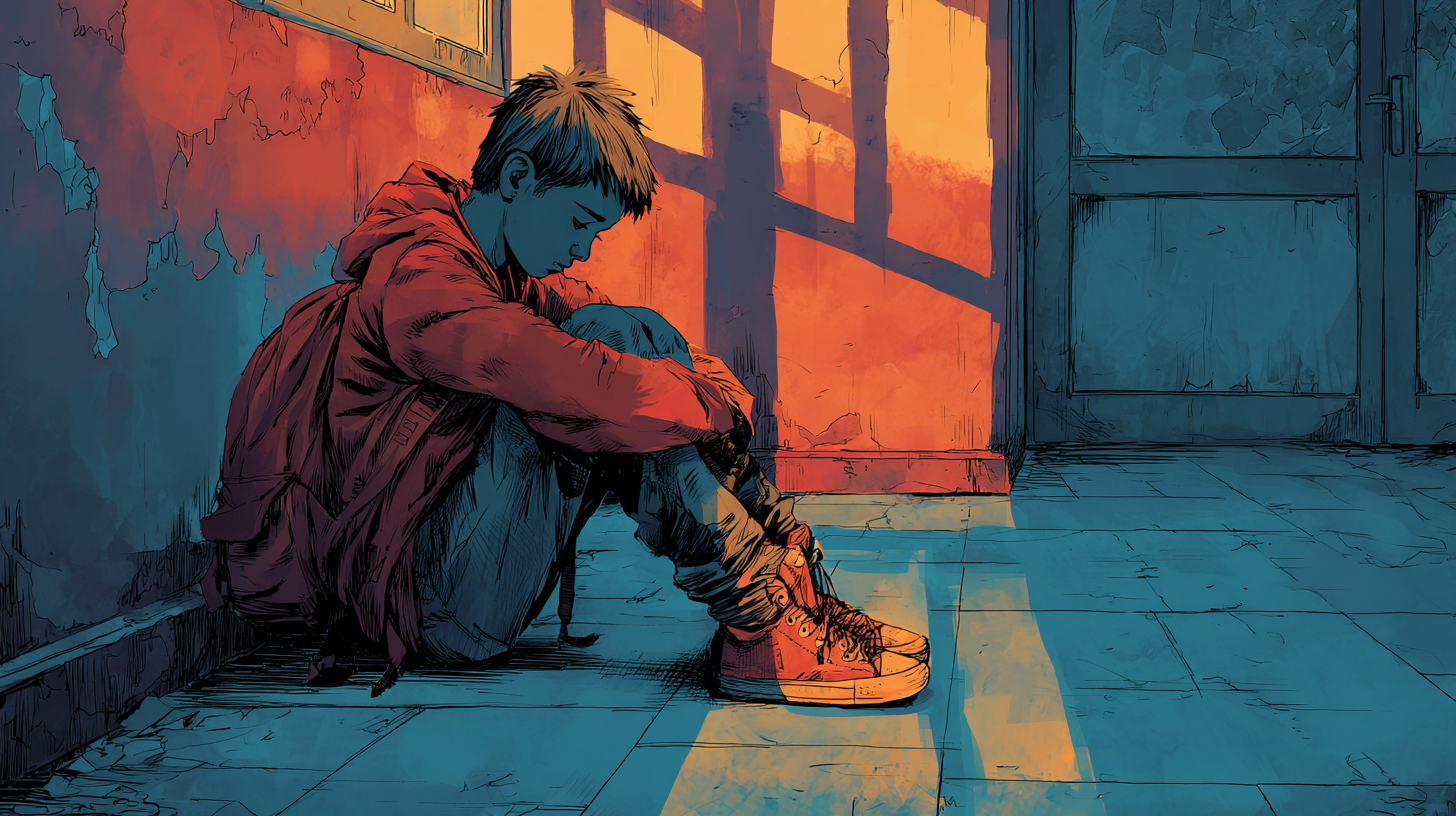
Scroll past the memes, the luxury-car rants, and the self-styled gurus selling "alpha secrets," and the feminist gynarchy conspiracy might seem like just another internet oddity: a fringe delusion best ignored. But behind the bluster lies something far more serious.
Belief in a secret gynarchy is not just about women. It's a mirror reflecting a deeper crisis in modern masculinity: economic upheaval, loneliness, shifting gender roles, and the crushing weight of expectations about what a man should be. It offers simple answers for complex pain. A villain to blame. A brotherhood to join.
And in too many cases, it's not just talk. It spills into real-world violence-mass shootings, domestic abuse, and a political climate increasingly shaped by resentment and fear.
At its core, the feminist gynarchy myth is a profound inversion of reality. While its followers insist women control society from the shadows, the facts remain stubbornly clear: women are still fighting for equal pay, safety from violence, and basic autonomy. There is no secret matriarchy. There is only a world struggling to redefine what equality-and masculinity-ought to look like.
Yet dismissing these men as mere misogynists misses the larger truth. Many who fall into this conspiracy aren't driven first by hate, but by disconnection, uncertainty, and grief for a world that feels like it's slipping away.
The real challenge-and the real hope-lies in offering something better. A vision of masculinity rooted not in dominance, but in connection. In empathy. In the courage to admit fear, vulnerability, and longing without shame.
That's why the work of activists, educators, and mental health advocates is so urgent. They're not just pushing back against a conspiracy theory-they're trying to save lives.
Because ultimately, the battle over the feminist gynarchy myth is not about whether women secretly run the world. It's about whether men can imagine a different story for themselves-and for all of us.
Things we learned this week 🤓
- 😵 Maverick bosses tend to make their employees miserable.
- 😒 Anxious people are less likely to be bullies, say researchers.
- 🥰 Male domestic abuse survivors often face ridicule and skepticism.
- 🙉 Scientists can find no evidence of alpha males in animal groups.
Just a list of proper mental health services I always recommend 💡
Here is a list of excellent mental health services that are vetted and regulated that I share with the therapists I teach:
- 👨👨👦👦 Peer Support Groups - good relationships are one of the quickest ways to improve wellbeing. Rethink Mental Illness has a database of peer support groups across the UK.
- 📝 Samaritans Directory - the Samaritans, so often overlooked for the work they do, has a directory of organisations that specialise in different forms of distress. From abuse to sexual identity, this is a great place to start if you’re looking for specific forms of help.
- 💓 Hubofhope - A brilliant resource. Simply put in your postcode and it lists all the mental health services in your local area.
I love you all. 💋


















